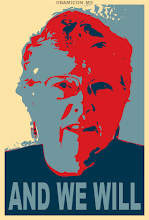Chile Indigenous Tribe Fights Extinction
SANTIAGO, Chile (AP) -- A once-nomadic tribe of hunters and fishermen living in the frigid channels near the bottom of the world is nearing extinction.
Down to just 15 full-blooded members, the Kawesqar people could soon go the way of other indigenous tribes in Chile, its language and culture disappearing to all but the history books.
Juan Carlos Tonko, however, is doing all he can to stop the Kawesqar's slow march to oblivion.
Six months ago, the 40-year-old left the comforts of the capital, Santiago, to return to Puerto Eden on Wellington Island in southern Chile and re-embrace the traditions of the people he left 25 years before.
Tonko is the lone Kawesqar of his middle-aged generation to come home, and now considers himself ''the transmitter of history'' for his tribe.
''I feel that I have a great responsibility,'' the soft-spoken father of four said during a visit to Santiago with his children's school, a trip that took two days by boat and a third by bus.
With support from the Chilean government, Tonko and a research team are recording the handful of Kawesqar speakers left in Puerto Eden, most of whom are in their 70s and 80s. ''The immediacy is urgent,'' Tonko said.
The plan is to produce materials to teach the language in schools nationwide as an optional subject to those interested. Then, if they can wrangle more funds, they will complete a cultural and historical survey of the Kawesqars, to correct the errors in the few existing texts written by outsiders.
Over the years, five of Chile's original 14 indigenous tribes -- the Aonikenk, Selk'nam, Pikunches, Changos and Chonos -- have been lost to the onslaught of colonialism, succumbing to disease, displacement and overuse of their traditional sources of food.
The 600,000-strong Mapuche tribe is the largest and most vocal indigenous group in Chile, a country with a population of 16 million.


Links to this post:
Create a Link
<< Home